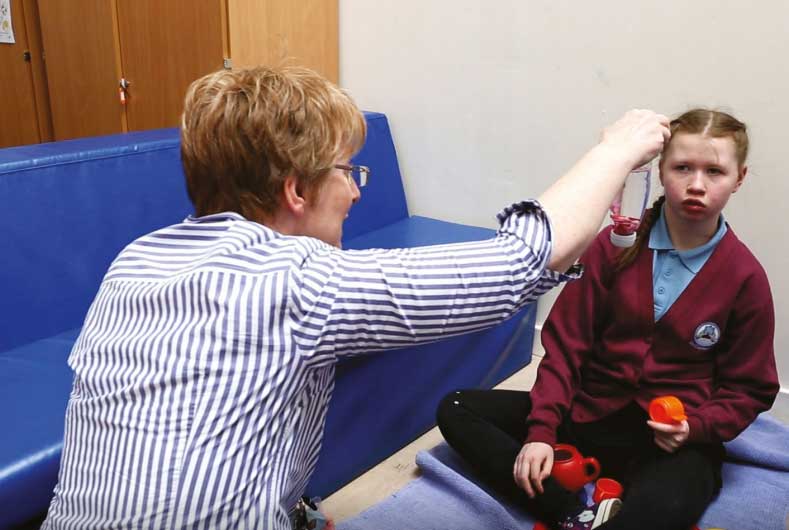Recommendations for Care Providers
- Create and sustain a rights-based approach to care, providing ongoing support, training and development for staff which effectively embeds rights-based thinking in day-to-day practice throughout your service.166 Health and Social Care Alliance Scotland (2017) Being Human: A human rights based approach to health and social care in Scotland; British Institute of Human Rights (2013) The Difference it Makes: Putting human rights at the heart of health and social care. London: BIHR
- Actively support the right of autistic people to choose where and with whom they live on an equal basis with others in society.267 Article 19 UN Convention on the Rights of Persons with Disabilities. See also 7.1.2 MacDonald, A (2018) Coming Home: A Report on Out-of-Area Placements and Delayed Discharge for People with Learning Disabilities and Complex Needs. Scottish Government
- Commit to the principle that no autistic person requires long-term institutional care and make real, effective and measurable progress appropriate to your service towards all autistic people living in the community.368 Department for Health and Social Care (2015) Statutory guidance for Local Authorities and NHS organisations to support implementation of the Adult Autism Strategy; Strategic Outcome 3 Scottish Strategy for Autism (2018)
- Encourage and promote positive risk taking, recognising emotional and social factors as at least as important as physical safety.469 Joseph Rowntree Foundation (2012) The right to take risks: Service Users’ Views of Risk in Adult Social Care
- Support staff to become confident and comfortable enabling and empowering positive risk taking and create a reassuring, solution-focussed, blame-avoiding culture throughout your service including in safeguarding activities.
- Support families and friends to understand and be comfortable with positive risk taking and a rights-based approach.570 P.121 Care Quality Commission (2018) The State of Care
- Promote a positive and accepting attitude to autistic identity and differences, including strong support and encouragement for staff to challenge discriminatory or inappropriate attitudes or behaviour even in colleagues, more senior staff, family members and professionals.
- Discourage beliefs and assumptions about cognitive/learning capabilities and support lifelong learning, development and meaningful contribution to society.671 For emerging research evidence of how autistic people can be erroneously underestimated see Courchesne et al. (2015) Autistic children at risk of being underestimated: school-based pilot study of a strength-informed assessment, Molecular Autism 6:12. On the harm caused by beliefs about fixed abilities for learning see also Yeager, D. S., Dweck, C. S. (2012) Mindsets That Promote Resilience: When Students Believe That Personal Characteristics Can Be Developed, EDUCATIONAL PSYCHOLOGIST; 47 (4): 302-314
- Recognise the potential vulnerability of autistic clients to bullying and use effective anti-bullying strategies evaluated by service users.
“Human rights are the basic rights and freedoms that belong to every person in the world. Based on core principles that include dignity, fairness, equality, respect and autonomy, human rights protect our freedoms to control our own lives. Taken together with Britain’s Equalities legislation – and the requirements of the Public Sector Equality Duty – human rights provide a powerful framework for change to which … public services must respond. The challenge is to make these rights a reality – to move beyond simple compliance and embrace the spirit of this legislation, so that human rights become active considerations for those who deliver public services and are at the forefront of every interaction.”772 P.3 Health and Social Care Alliance Scotland (2017) Being Human: A human rights based approach to health and social care in Scotland
“Improvements in person-centred care and values-led cultures in services play a big part in advancing equality and inclusion … But overall progress is very slow and there is potential for much more improvement. For change to happen, leaders need to proactively tackle equality issues and engage with staff and people using services.”873 p.106 Care Quality Commission (2018) The State of Care
In a good service for autistic people, family members, friends and staff throughout the service are supported to understand and use rights-based thinking. A good service for autistic people is one where staff throughout the service believe that everyone can be effectively supported to live safely in the community, whatever their disabilities. A good service for autistic people rejects assumptions about fixed or limited capacities and provides active support for learning and development throughout the lifespan.
Good service commissioning for autistic people recognises the right of autistic people to decide where and with whom they live on an equal basis to others in society. This means recognising that some autistic people may be unable or do not wish to live with others. It also means recognising that the sensory and other needs of some autistic people may require unusual housing and support options, such as remote or rural locations, living alone and/or support not always being provided in the presence of the individual supported. This also means not requiring individuals to live with others for efficiency or cost reasons when it is not the individual’s choice to do so and ensuring that, where an adult chooses to live with others, their choices of who that should be are not constrained by commissioning decisions.
“Few autistic people or families feel that the UK general public has a good understanding of autism or what it means to be autistic. Worryingly, professionals in key positions in health, education, housing, criminal justice and other systems often appear to be untrained and under-prepared for effective engagement with autistic people. This ignorance can manifest itself in many ways [including] poor access to appropriate health and social care … anti-bullying and similar interventions are needed to offer protection from what could be a lifetime of distress and damage.” 974 P.35 National Autism Project, The Autism Dividend (2017)
In a good service for autistic people, all staff, service users, family and interested others feel able to challenge discriminatory or inappropriate attitudes and beliefs, whoever they may be expressed by, based on a firm grasp of key legal principles around capacity, rights and equality. A good service for autistic people recognises and identifies bullying and maintains a culture which prevents bullying effectively.
Good Practice Example
Autism Voice
Autism Voice aims to end Autism related stigma and discrimination for autistic people and their families in BAME communities and wider society in the UK. Their 2018 Symposium brought together key stakeholders to raise awareness, highlight challenges and identify ways of addressing the challenges affecting people and families affected by Autism in the Black, Asian and Minority Ethnic Community in the United Kingdom.

